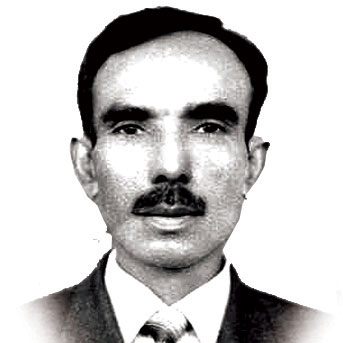Dual policy of FATF
THE Financial Action Task Force (FATF) was formed in 1989 by the G7 Summit in Paris to combat the growing problem of money laundering, monitoring legislative, financial and law enforcement activities taken at the national and international level, reporting on compliance, and issuing recommendations.
The organisation’s mandate was expanded to include terrorist financing following the September 11 terror attacks in the US in 2001.
However, after holding the plenary meetings virtually from 22-25 February 2021 in Paris, the FATF kept Pakistan on the grey list for another extended period till June 2021 and asked for complying with the remaining three points of 27 action plan to target on Anti-Money Laundering and Combating the Financing of Terrorism.
During an online news briefing in Paris, the FATF’s President Dr Marcus Pleyer said: “Pakistan will remain on the grey list as some deficiencies still exist as out of 27 action plans.”
The FATF authorities provided opportunity to many Indian journalists to ask questions, but many Pakistani journalists could not get a chance despite raising hands in news briefing.
Nevertheless, FATF’s three remaining demands includes (1) TF [terror financing] investigations and prosecutions of target persons and entities (2) TF prosecutions result in effective, proportionate and dissuasive sanctions and (3) effective implementation of targeted financial sanctions TFS [terror financing sanctions) against all 1267 and 1373 designated terrorists, specifically those acting for or on their behalf.
In fact, active Indian lobbying and propaganda campaign to blacklist Pakistan failed, while a minimum of three votes by FATF members are required to avoid the blacklist and Islamabad enjoys the unwavering support of Malaysia, Turkey, and its all-weather friend China.
Some pro-Indian European countries, especially France and Germany, had recommended to the FATF to maintain Pakistan on the gray checklist, saying that not all factors had been totally applied by Islamabad.
Last year, the PTI-led government got three laws—the Anti-Money Laundering (second amendment) Bill-2020, Anti-Terrorism Act (ATA) (third amendment) Bill-2020, and Islamabad Capital Territory Waqf Properties Bill-2020, which were passed in the joint sitting of Parliament.
While, law enforcement agencies have cracked down on many hardliner-religious groups particularly Lashkar-i-Taiba (LeT) and its welfare arms, Jamaatud Dawa (JuD) and Falah-i-Insanyat — and on their sources of income, arresting, trying, and convicting several of their members and leaders.
Pakistan has been on the FATF grey list since June 2018, while some Western countries and especially India have been calling on Pakistan to take action against the terror groups to avoid ‘Dark Gray’ list status of the FATF.
They have long failed to do. Indian media spreads disinformation that Pakistan may be put on ‘Dark Grey’ list.
For years, New Delhi has been, also accusing Islamabad of using the banking system to sponsor terrorism.
On the other side, involvement of Indian banks in money laundering and financing terrorism has been exposed.
In this connection, on 27 September 2020, a report of the top-secret files of the US Treasury Department’s Financial Crimes Enforcement Network (FinCEN) which works to combat money laundering, terrorism financing and financial fraud has revealed the “involvement of Indian banks, including the state-owned banks in money laundering through transactions used in facilitating and financing acts of terrorism, particularly in the region—The entities and individuals were involved in money laundering of $1.53 billion through 3,201 illegal and suspicious transactions between 2011 and 2017.”
There are also reports that gold and diamond were also used for money laundering, while Indian Premier League (cricket tournament) has also been pointed out by the Indian judiciary for money laundering practices.
Notably, in November, last year at a joint press conference and a joint press briefing, Director General of Inter-Services Public Relations (ISPR) Major-General Babar Iftikhar and Foreign Minister Shah Mahmood Qureshi unveiled a dossier containing “irrefutable evidence” of India’s sponsorship of terrorism in Pakistan.
And Pakistan’s Ambassador to the UN Munir Akram handed over the dossier to the UN Secretary General Antonio Guterres on India’s campaign to promote terrorism in Pakistan and the entire region.
In its 27th report, dated February 3, 2021, the UN Security Council’s monitoring team for tracking terrorist groups verified Pakistan’s dossier, while acknowledging Pakistan’s efforts in arresting individuals engaged in terrorism financing and noting the threat from the TTP—the reunification of splinter groups [of TTP] in Afghanistan, which enhanced the threat of terrorism not only to Pakistan but the entire region.
The UN report of July 26, 2020 also endorsed the dossier by further revealing about “the significant presence of ISIL-K (The Islamic State of Iraq and the Levant Khorasan) in Afghanistan”, which “pursues a global agenda.”
Besides, the EU DisinfoLab has continued unraveling India’s terror-network and anti-Pakistan propaganda campaign.
Although FATF’s member-countries are the US and other Western countries, including many Islamic states, yet decisions of the US-led major Western countries prevail on the organisation.
Undoubtedly, dual policy of the FATF is quite obvious. Despite implementation of the many recommendations, FATF has become a tool of keeping pressure on Islamabad, while ignoring New Delhi.
—The writer is contributing columnist, based in Lahore.










